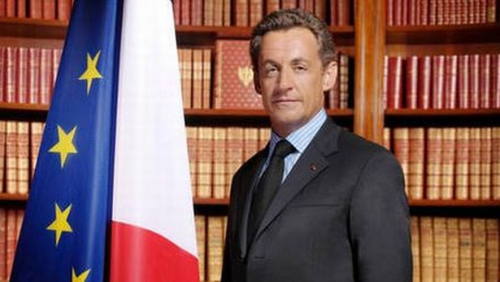 PARIS, FRANCE:--- Former French President Nicolas Sarkozy has been found guilty of criminal conspiracy in a high-profile case involving allegations of illegal campaign financing from the late Libyan dictator Muammar Gaddafi. On Thursday, a Paris court sentenced Sarkozy to five years in prison, marking a significant moment in a legal saga that has spanned over a decade.
PARIS, FRANCE:--- Former French President Nicolas Sarkozy has been found guilty of criminal conspiracy in a high-profile case involving allegations of illegal campaign financing from the late Libyan dictator Muammar Gaddafi. On Thursday, a Paris court sentenced Sarkozy to five years in prison, marking a significant moment in a legal saga that has spanned over a decade.
The Verdict and Sentences
The court found Sarkozy guilty of criminal conspiracy related to efforts to secure funding for his successful 2007 presidential campaign. The judge ordered that he be taken into custody at a later date, a measure that will remain in force even if he appeals the decision. In addition to the prison term, Sarkozy received a €100,000 fine and has been stripped of his civil and civic rights.
While convicted of conspiracy, Sarkozy was acquitted of several other charges, including corruption. The court's ruling suggested that while it believed Sarkozy's close associates actively sought financial support from Libya, it could not definitively prove that Libyan money was used in the campaign itself. However, under French law, the act of entering into a corrupt agreement can be a crime, regardless of whether funds were ultimately exchanged.
Several of Sarkozy’s close aides were also sentenced:
- Claude Guéant, his former chief of staff, was found guilty of passive corruption and falsification. He received a six-year prison sentence and a €250,000 fine.
- Brice Hortefeux, a former minister and close ally, was convicted of criminal conspiracy and sentenced to a two-year suspended prison term and a €50,000 fine.
Sarkozy's Defense and Reaction
Throughout the trial and for years prior, Sarkozy has vehemently denied all allegations. He has consistently maintained his innocence, claiming the accusations are part of a "plot" orchestrated by the Gaddafi clan as revenge for his role in the 2011 NATO-led intervention that led to the dictator's downfall. His defense team argued that the prosecution's case was weak, built on unsubstantiated claims and lacking concrete evidence of financial transactions.
In response to the verdict, Sarkozy denounced the ruling as a "scandal" and an "injustice," immediately vowing to appeal. He stated that if he is incarcerated, he will face it "with my head held high."
A Case with Deep Roots
The allegations first surfaced in 2011, when representatives of the crumbling Gaddafi regime claimed they had secretly funneled millions of euros to Sarkozy's 2007 campaign. The case gained momentum in 2012 when an investigative news outlet published a document allegedly from Libyan intelligence that referenced a €50 million funding agreement.
The investigation that followed uncovered a series of trips to Libya by individuals close to Sarkozy and relied on testimonies from various figures, including French-Lebanese businessman Ziad Takieddine. Takieddine initially claimed to have delivered suitcases of cash but later retracted his statement, a reversal that is now part of a separate witness tampering investigation.
Prosecutors described the arrangement as a "Faustian corruption pact," alleging that Sarkozy’s team sought funds in exchange for political favors, such as helping Libya regain international legitimacy.
Broader Implications and Other Legal Battles
This conviction is another major blow to the political legacy of the man who led France from 2007 to 2012. It is not Sarkozy's first encounter with the justice system. He was previously convicted in two other separate cases: one for corruption and influence peddling (the "Bismuth" case) and another for illegal campaign financing related to his failed 2012 reelection bid.
The latest ruling further complicates Sarkozy's public image and adds to a growing list of legal troubles that have followed him since he left office. As he prepares to launch an appeal, the case continues to raise serious questions about political ethics and the influence of foreign money in democratic elections.












